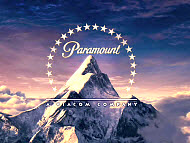See this page in: French
Vanilla Sky
 for sex, partial nudity, violence, and language.
for sex, partial nudity, violence, and language.
Reviewed by: Dr. Kenneth R. Morefield
CONTRIBUTOR
| Moral Rating: | Very Offensive |
| Moviemaking Quality: |
|
| Primary Audience: | Adults |
| Genre: | Romance/Thriller |
| Length: | 2 hr. 25 min. |
| Year of Release: | 2001 |
| USA Release: |
December 14, 2001 (wide) |

Should I save sex for marriage? Answer
What are the consequences of sexual immorality? Answer
What are the guidelines for dating relationships? Answer
I just found out I’m pregnant and I’m not married. What should I do? Answer

SUICIDE—What does the Bible say? Answer
If a Christian commits suicide, will they go to Heaven? Answer
| Featuring |
|---|
| Tom Cruise, Penélope Cruz, Cameron Diaz, Jason Lee, Kurt Russell |
| Director |
|
Cameron Crowe |
| Producer |
| Tom Cruise, Paula Wagner |
| Distributor |
Magazine publisher (Tom Cruise as David Aames) eschews commitment with his “sex buddy” (Cameron Diaz), but thinks he may have found true love when he sees Sophia (Penélope Cruz) at a party. Later, he finds himself in a prison cell being questioned by a psychiatrist and has no memory of what happened. This is the setup for “Vanilla Sky”.
My initial impression of “Vanilla Sky” was that it is a poor man’s “A.I.,” which was a poor man’s Kubrick. Then I found out that the story was actually based on a Chilean movie made in 1997. Has Hollywood become the film equivalent of early rock stars pillaging the artistically innovative but unmarketable other races? Is there some reason why Crowe had to remake this film rather than promote its own release?
Well, I guess you can plagiarize all you want as long as you cite your sources. But considering that the Internet Movie Database credits Crowe with exactly 7 writing credits in the last 20 years, one can’t help wonder why he’s running out of ideas so quickly.
Is it contradictory to say that Cameron Crowe is one of the most skilled and most overrated writer/directors in Hollywood?
There are two elements of the film that make it both distinctively Crowe and less than satisfying art. The first is the way in which its mechanical polish hides its lack of development. The second is its infatuation with the superficial markers of happiness and success.
“Vanilla Sky” is one of those movies with big plot twists that the reviewers are not supposed to give away. Unlike the better examples of such genres, it relies upon the fact that reality and dream world are indistinguishable in mood and presentation to the external viewer.
Fans of the film will complain that we are given contextual clues (things that happen) as to what is real, but, for me anyway, the film plays like one step up from the high school short story that you didn’t know how to end and so had the character wake up and say, “It was all a dream!” It is an idea for a movie, not an idea movie.
Having got (or in this case stolen) a pitchable plot, Crowe never stopped to think what he wanted to use the situation to say. As a result “Vanilla Sky” is about polishing the presentation rather than providing content. The much better “Run Lola Run,” for instance, delivered its surprise a third of the way through the movie and continued to think about its subject, allowing you to do the same.
Movies such as “Dark City” and “Memento” or “Vertigo” parcel out the key bits of information to you so that you can make the discovery with the protagonist, not just watch him make it. Not that there aren’t clues in “Vanilla Sky”. Every time the frozen dog comes on the television screen, Crowe practically screams at you: “Pay attention! This is not just background information!”
The problem is that even though you know the hints are (or will be) significant, you have no way of knowing what their significance is because the movie withholds any evidence that might allow you to figure out what you are watching. In that way, “Vanilla Sky” is like many Post-Modern movies; it is scared of its audience being too intelligent. And so it substitutes the cheaper thrill of an unforeseeable (although plausible) surprise for that of the internally consistent and pleasurable discovery.
Tom Cruise gets to spend much of “Vanilla Sky” in a latex mask or with a disfigured face. I was reminded of Mel Gibson in “The Man Without a Face.” These movies are in some ways just prettied up equivalents of “Shallow Hal” or “Soul Man”. See handsome man. See how superficial he is. See him lose that which he has never come to appreciate and for which we envy him. See him become a better person by recognizing and valuing inner beauty in himself and thus being able to see it in others.

Most of Crowe’s films, and “Vanilla Sky” is no exception, are stuck in the infatuation-with-pretty-girls stage. In almost all his films, the main character views himself as a misfit/geek/outcast who does not believe he is worthy of the brass ring/trophy of the beautiful girl.
At least in “Fast Times at Ridgemont High” (which he wrote but did not direct) and “Almost Famous”, the main character is, to some degree, what he feels he is. But in Crowe’s other films, it is sort of hard to watch John Cusak (in “Say Anything”) or Tom Cruise (“Jerry Maguire,” “Vanilla Sky”) pretend to be insecure.
Oh, one can see how the actors would be attracted to said roles—“Look at me; I’m an actor! Isn’t it ironic how I can play someone rich and beautiful who gets to make love to Cameron Diaz 4 times in 1 night and blow her off the next morning, but is secretly, deep down, unhappy? See we are the same, you pimply teenagers and I, deep down we want the love of that good, special someone to validate us, and we can’t have it. Of course, I get to fill the emptiness with booze, pills, sex, and money, but trust me while you envy me, these things don’t really make me happy either on the screen or in real life.”
Crowe, for all my nasty comments, does have a knack for some snappy dialogue. The best scene here is where Cameron Diaz explains to Cruise’s character in crude but elegant (and poignant) terms that sex always means something. Unfortunately, her character is prematurely and summarily dismissed from the movie, and I think it a sign of the movie’s immaturity that in its two hour and fifteen minute examination of the question, “What does happiness mean to you?” the concepts of service, sacrifice, or indeed any consideration of the effect you have on others are never seriously considered.
Like Robin Williams at the end of “What Dreams May Come”, Cruise’s David promises Cruz’s Sophia that he will find her and, with her, happiness. And what happens to the woman so tastefully described by his best friend as David’s “f*** buddy”? Maybe he gets to kill her for the sin of loving him after she has made love to him. Maybe he just imagines killing her. Whatever her fate, we know her continued existence is not tied intimately to David’s happiness and is, hence, immaterial.
“When you have sex with a person, your body makes a promise, whether you recognize it or not.” —Julie Gianni, “Vanilla Sky”
“So they are no longer two, but one.” —Matthew 19:6a


Instead, he spends most of the review ranting incoherently about Crowe’s audacious “plagiarism” (since when has anybody involved with the film pretended it was an original idea?). Firstly, it’s not plagiarism when you credit your source material, and, secondly, this film is strikingly different to the usual Hollywood product, hence the hostile reception it has received from those who were looking for a “Tom Cruise vehicle”. So to berate the film for lacking in originality seems a little strange. Personally speaking, I was hugely impressed. A moving performance from Cruise as a deeply flawed and frequently unsympathetic person (ie. a human being), some fantastic visual flourishes from Crowe and basically a thought provoking and complicated film that refuses to offer false, “easy” [answers]…
[Good / 5]
You don’t have to be rich and sexy to identify with that message. I know a lot of people who fit the bill. For this reason, I think, as a Christian, that this movie has an excellent moral.
[4]
[Very Offensive / 4½]
I was very disappointed with the ending and immediately thought of my childhood efforts at story writing which always ended, “then he woke and realised it was all just a dream”. It is important for us to notice that once again a movie is desensitizing us on the subject of playing with life. Whilst the film looks at an extreme instance, it contributes to the steady dumbing down of moral senses, thereby paving the way for public approval on issues such as cloning.
Was there some attempt being made to suggest that LE were providing an alternative to heaven? Interestingly at the end of the film, Ames decision to live and die naturally (born out of a desire to bring an end to everything), seemed to have a flavour of eastern religion to it in pointing to “nirvana”.
[Average / 3]
We just may have seen our last Tom Cruise movie. We are aware that he is into Scientology and is definitely not a Christian, but this movie was just plain bad.
Only self-professed “intellectuals” will try to justify this piece of tripe. When we go to movies we want to be entertained, not enlightened or indoctrinated. What a waste of his film and our time.
[Extremely Offensive / 1]
Why does Hollywood think I want to watch nasty rich 30-somethings whine because they can only have sex with one woman a few times a day rather than two women. Give me a break. I would have liked to see the original Chilean movie, but Cameron Crowe is on my “block sender” list after I wasted $8.50 on this turkey. My advice: save your time and money.
[Extremely Offensive / 2½]
[Average / 2]
[Very Offensive / 3]
[Very Offensive / 2]
The main theme of this movie is “The sweet just ain’t as sweet if you don’t have the sour to go along with it.” I believe that message is so important. I absolutely loved the way Vanilla Sky gets that point across as well.
Many complain that this movie is entirely too complicated (or boring). I admit, the first 2 hours of it nearly gave me a migraine, but once everything became clear—man, it was worth it. While controversial, Vanilla Sky is definitely worth seeing.
[Extremely Offensive / 5]
I went to see it with a female friend of mine who is like a cousin to me and was horribly embarrassed by two scenes in the movie. I left the theater during the first scene and went to the bathroom until it was over… the second scene I chose to cover my eyes during, but, unfortunately, I was still able to hear it ,and so that made for a very embarrassing situation.
I would suggest waiting until the DVD is out, renting it and fast-forwarding through these two scenes.
Without them the film could have been [more acceptable]…
[4]
A common example is a seeker claiming “God is real, for you, because you believe he is. But my reality doesn’t have room for him.” Don’t take this movie as truth, or a way of life. but more of a way to see how the culture is changing and if the Church doesn’t change, how will we ever lead people to Christ?
Also, check out a book by Tony Jones… it’s called Postmodern Youth Ministry.
[Average / 3]
And then, when Tom Cruise is at his breaking point, it’s revealed, and it makes perfect sense. It wasn’t complicated, I didn’t think. It was very logical. There are also some visually magnificent scenes. For example, there’s a scene in which the Cruise character is in Times Square running, and he’s totally alone. There are no cars, no other people, no movement except Tom Cruise.
There are also some subtle powerful lines: “We talked about the big things, the little things… the big things. More clues!!! The acting was great. Let’s hear it for Jason Lee, who was remarkable as always. And Kurt Russell did a fine job…
[Very Offensive / 5]
Not only that, but the title “Vanilla Sky” is SO unrelated to the plot. (many people have agreed on this fact). A film titled that would be presumed by most people to be a romantic, adventurous, yet satisfying film. (since the trailers show two beautiful girls stuck on our one pretty boy).
Instead, this movie was sci fi, and tried way too hard to appear “so called intelligent and Stephen King-ed.”
The numerous swear words (and there are MANY) and racy love scenes (there are even more) don’t help. “Vanilla Sky” pushes its R rating to the limit…
[Extremely Offensive / 2]

My Ratings: [Average / 4]